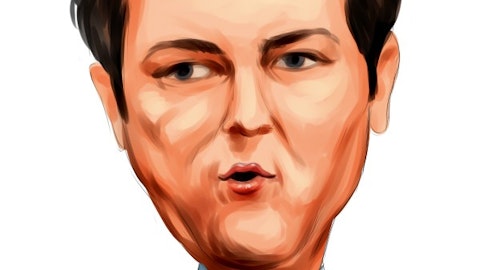Noelle Dilts: Okay. Great. And just a quick one on the M&A front. I mean I appreciated your comments on the call. Tony, I think last quarter when we spoke, you talked about wanting to make sure you’re really comfortable that the companies are properly kind of booking work and are assessing the risks associated with the current macro environment. How are you thinking about just — I guess, risk associated with M&A today? And do you feel like multiples are coming down to a more reasonable level to kind of reflect the current environment?
Anthony Guzzi: Yes, I don’t know about multiples overall. We don’t really pay attention to them. We know we tend to evaluate each investment on its own merit. And where we have the most success is when we’re working with an owner, they may have an intermediary working with them, but they really want to be part of our team and we try to get to a fair deal. We’re not bargain buyers. And I tend to look at things like this. We are very excited about the results of our acquisitions over the last 5 years. And that’s a relevant time period. You do stuff way before that, market change, you do other stuff. In general, I think we’re a good B, B+ student on acquisitions. The more you lean to it, our competitive process where we’re buying from private , we’ve done that a few times.
Okay, successfully, it tends to not be as high of a return, obviously. But where we can work together with management, develop a business case for the future, where we understand really in-depth their capabilities where we can build on those capabilities, where we can move them maybe a little bit out on the project size by a lot of peer learning. We tend to get returns in the high teens. And if I look at how we’ve done in the last 5 years, we’ve been very judicious. I think about how we think about it, right? ’19 was a great year for us acquisition-wise. We brought some good companies in. We’ve strengthened our Electrical portfolio mainly over the last couple of years. And that was just timing, right? People we’ve been talking to for quite a bit of time, and we haven’t forced deals we ever have.
Deals we walked away from that were larger because we couldn’t get comfortable with their backlog. We couldn’t get comfortable with their cash conversion. And in our business, one of the things we look at is if we can’t get comfortable with the cash conversion over a period of time, there’s something not right in the reported results because our view of the world is, eventually, it all comes out in the cash. And so we start with that cash flow statement and move back through the due diligence. And that served us well over a long period of time. We have a fairly healthy pipeline, deals close when they close. We look at 30 to get to 10 to get to 1, right? Our team screens. The team really only engages probably — once we decide we’re going to do something to get pretty far along, we have a pretty good idea that we’re going to close it.





